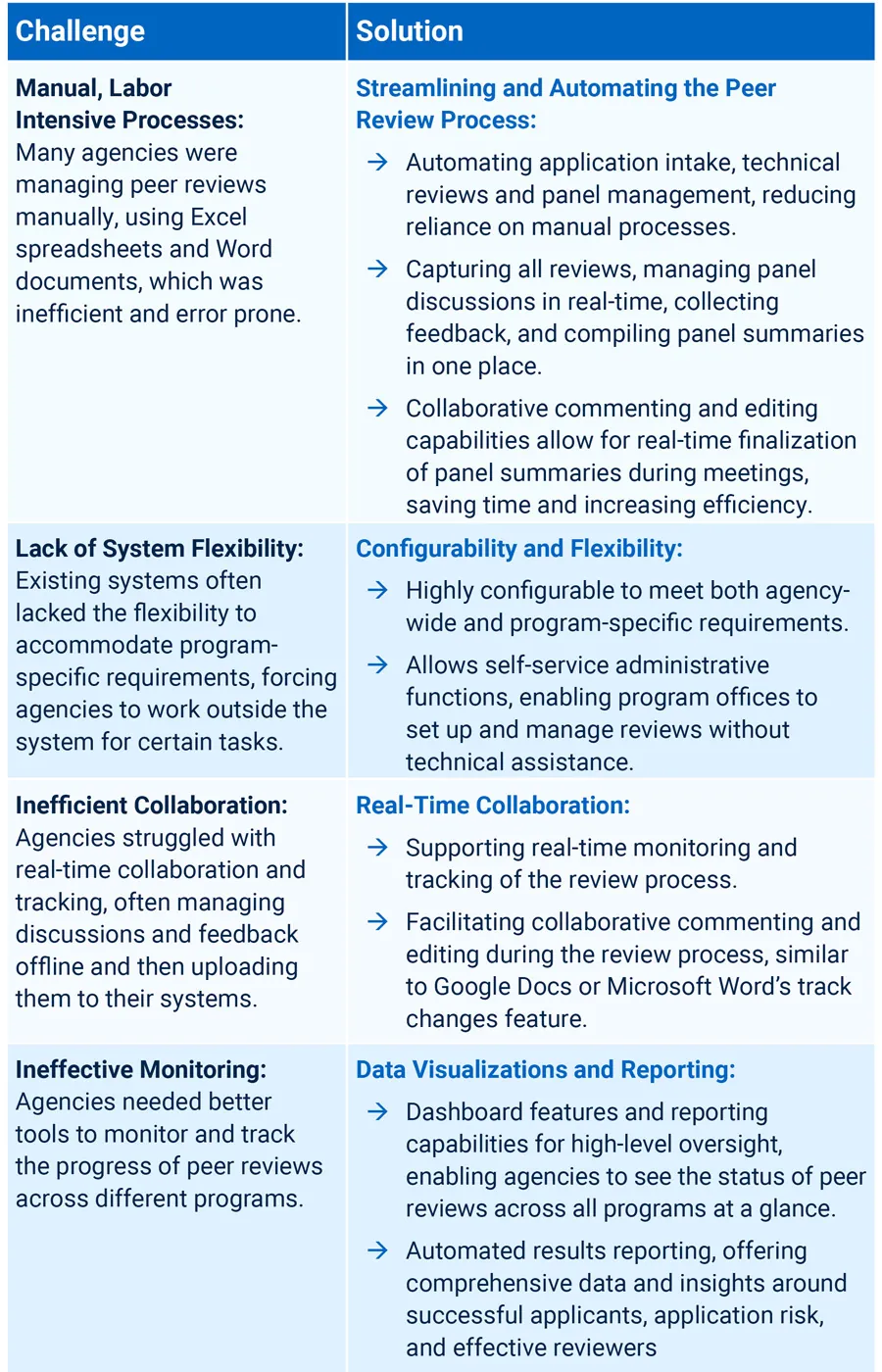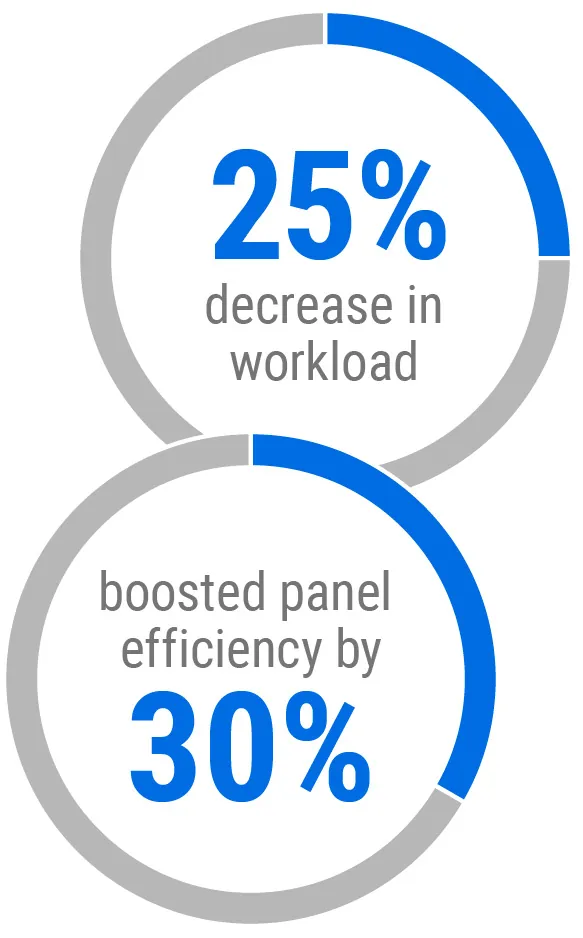Background

For the past two decades, NSF reviewers and panelists have relied on a legacy system for ad hoc proposal reviews and panel-based peer reviews. However, the legacy system’s aging technology hampered NSF’s ability to accommodate tailored evaluation needs for individual research programs, secure sensitive research information, and provide an intuitive user experience. This has resulted in numerous inefficiencies and user frustration.
REI Solution
REI built GovReview to take the complexity out of the peer review process. GovReview provides a modern, intuitive, cloud-native, scalable and efficient tool for conducting and monitoring peer reviews. It is highly configurable, allowing agencies to design their selection criteria and collect review data to make informed, data-driven decisions for selecting the best grant or contract recipients. In addition, its modular architecture facilitates easy integration with an Agency’s existing grants management ecosystem. GovReview addresses a number of common challenges faced by NSF and other grant-making agencies as summarized in the table below:
GovReview Implementation at NSF
REI implemented our GovReview solution for NSF as their ‘Proposal Evaluation System (PES)’. GovReview is based on a modular architecture and provides for integration points from upstream and downstream systems, allowing NSF to “plug-and-play” the Panel Review process into their existing enterprise-wide Grants Management ecosystem. Using industry-standard development practices with Open API standards, GovReview enables other source NSF grants systems to provide configuration data for Programs, Solicitations, and Reviewers, thus reducing the need for duplicative data entry and supporting accurate and consistent data throughout the enterprise.

Impact
GovReview replaced outdated technology in a key NSF application, offering a modern, easy-to-use, cloud-native tool for peer reviews. It integrated seamlessly into NSF’s existing grants ecosystem, improving data flow and reducing administrative workload. Since its go-live, GovReview has supported over 500 NSF panels and 3,000 panelists across ~120 programs. GovReview is designed to scale further, accommodating over 1,500 panels and more than 12,000 panelists annually.
The GovReview implementation at NSF has improved operational efficiency and enhanced the experience for both researchers and reviewers, leading to cost savings and faster scientific advancements.
Improved Efficiency of Panel Reviews:
NSF staff can use GovReview’s self-service features to set up opportunities, reviews, and panels according to their specific needs, without extensive technical support. NSF administrative staff handling proposal processing have seen a 25% decrease in workload associated with these tasks, allowing them to focus on other valued tasks.
- The new collaborative commenting and editing features boosted panel efficiency by 30%, allowing for real-time finalization of summaries during meetings and eliminating the need for lengthy offline back-and-forth edits.
- Dashboards and reporting tools effectively track the merit review process, helping NSF make data-driven decisions that significantly impact its mission.
Increased Quality of Panel Reviews:
- Tailored program-specific templates allow proposal reviewers to complete reviews based on solicitation-specific criteria, thus enhancing the quality of the review response. This includes a tailored panel summary template allowing individual programs to share meaningful and relevant information with the final approvers to support faster and better funding decisions.
- Shortening the review timeline led to a quicker turnaround for funding decisions, benefitting researchers by enhancing their ability to plan research timelines effectively.
Conclusion

Following successful implementations at NASA and NSF, GovReview’s modular, plug-and-play design is ready to enhance peer review processes for other agencies.
Copyright © 2025 REI Systems. All rights reserved.




 NSF staff can use GovReview’s self-service features to set up opportunities, reviews, and panels according to their specific needs, without extensive technical support. NSF administrative staff handling proposal processing have seen a 25% decrease in workload associated with these tasks, allowing them to focus on other valued tasks.
NSF staff can use GovReview’s self-service features to set up opportunities, reviews, and panels according to their specific needs, without extensive technical support. NSF administrative staff handling proposal processing have seen a 25% decrease in workload associated with these tasks, allowing them to focus on other valued tasks.

